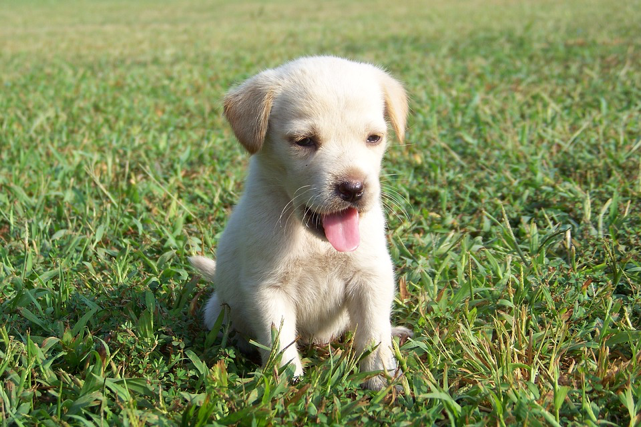When I talk of how to mold your puppy into just the dog you desire I am not talking about everyday dog training. Don’t get me wrong though, I am not saying that typical dog training has no place in turning your puppy into the well behaved canine citizen that I assume you desire. What we are about to discuss are important aspects you should be aware of concerning the young puppy. Okay let’s get on with it.
Choosing Your Most Compatible Puppy
So what do I mean when I say choosing your most compatible puppy? This simply means picking the puppy that best matches you, your personality and your lifestyle. Now it is well known and understood that the different dog breeds were bred to carry out different tasks and to that end they exhibit very different genetic or hereditary characteristics.
Thus taking the retriever dog breeds for example, as their name suggests they were bred for, among other things, to retrieve. This trait was honed and sharpened through selective breeding over time; this explains why dogs from this breed are ever so happy and willing to play catch.
Taking another dog breed group as an example, let us consider livestock herding dogs. As the name of the group obviously suggests, such dogs were selectively bred to herd livestock. In other words those individuals that excelled at herding livestock were bred amongst themselves (as well as outsiders to minimize the inherent problems with inbreeding) to accentuate the desired traits.
Thus it is not uncommon for such selectively bred herders in today’s urban environment to express their natural tendency to herd by rounding up the kids of their family in place of the livestock they were originally bred to herd. Right those are enough examples methinks.
Now back to the most compatible puppy issue. The thing that most people don’t take into account is that puppies from the same litter (just like kids from the same family) have widely different personalities and characters. And typically most people pick the puppy that rushes up to them first before its siblings under the presumption that it has chosen them and must be the one. Truth be told that puppy is simply the most boisterous, dominant and aggressive one. This may not be an issue when the puppy is small, but trust me, it will certainly blossom into one when the puppy matures (especially if it is from a large dog breed).
By Seven Weeks Old A Puppy Has Attained Its Adult Dog Personality & Character
But here’s the really great news. There’s a scientifically proven method to determine the personality and character of a puppy at just 7 weeks old. Yup! It is now well understood and accepted that by seven weeks old a puppy has already attained its adult dog character.
So in simple language what does this mean to you? Well it means that if you’re looking for a laidback dog from a particular breed you can choose that dog when it is still a puppy. I’m not going to go into details behind the procedure of puppy selection but suffice it to say it is very straightforward.
Puppy nutrition shouldn’t be overlooked and with so much controversy surrounding doggy diets finding the best dog food for puppies would be challenging. A good mix of dry kibble and some raw foods is a good starting point to ensure your puppy gets a balanced diet.
When Should You Pick Up Your Puppy?
Although you should pick out your puppy at seven weeks after carefully assessing the one that is most compatible with your personality a good breeder would recommend that you pick up your puppy when it is at least 8 weeks old. How come?
Well, the reason why a puppy should not be prematurely separated from its mother and litter mates is because before then it would not have learned sufficient social skills and language comprehension from both its mother and interaction with its litter mates that would allow it to function as a wholesome well rounded canine individual later on.
One of the consequences of premature separation from mum and litter mates is that when that puppy matures into a grown dog he/she will be incapable of playing with both humans and fellow dogs without inflicting damage! Why? Because as a puppy he/she never learned how to interact with his siblings in play where he would have mastered the skill of bite pressure and force restraint, thus preventing serious injury during play as an adult dog.

